How to start a garden
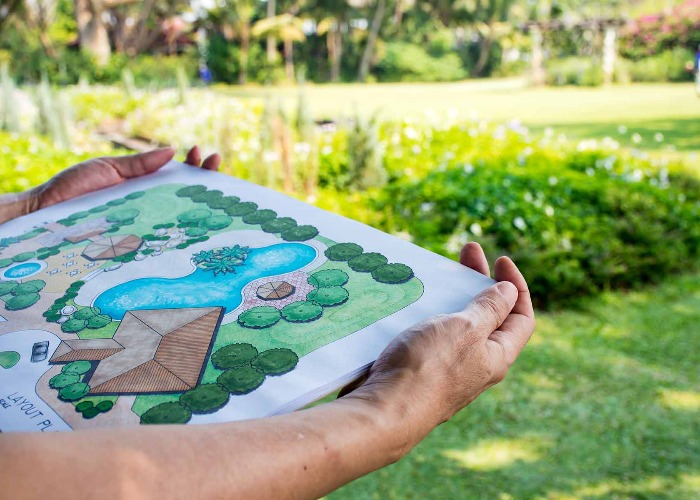
Just moved or starting from scratch? From how to grow vegetables to garden design, our resident gardening expert walks you through those first tentative steps for making a new plot your own
Taking on a new outdoor space and transforming it into a flourishing garden can be a daunting task for even the most green-fingered among us.
READ MORE: Stylish but simple small garden ideas
From what to plant and where to plant it, to soil quality and surprisingly sunny nooks, there's so much to consider before you break ground.
Luckily our garden expert is on hand to help. Grab your trowel and follow these tips to understand your new space and create your own little patch of paradise.
Watch out for light and shade
The best thing you can do with your new patch is to watch it. The simple act of observing will pay dividends, helping you to choose ‘the right plant for the right place’; do this and you can’t go far wrong. You need to develop an understanding of your garden and here’s how.
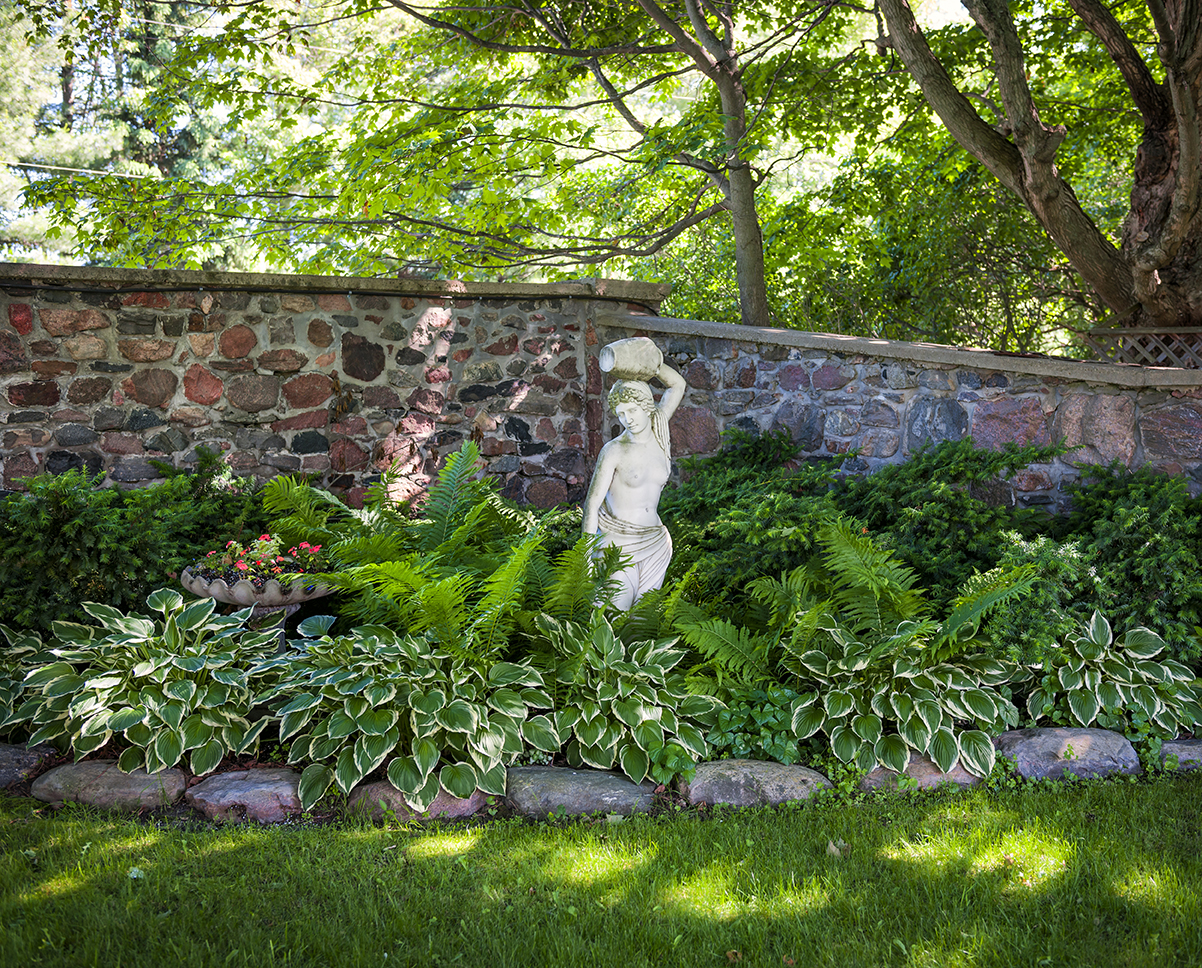
Watch out for where the light hits in a new garden. Image: Shutterstock
- Take notice of where the sun hits the garden and for how long
- Make a note of shady areas, as well as damp or very dry zones
- Assess if the site is exposed to weather, such as winds or if it is more sheltered
Once you have an idea about these factors you will be in a better position to plan your garden to maximum effect and minimise costly mistakes.
Observe what’s already there
See what plants are already in your plot and how they are flourishing. Peer over the neighbour's fence and see what’s doing well there too. It is said you should observe your garden for a full year, making notes on what emerges or dies back at certain times, before taking major action.
For instance, if you arrived at your new house in winter, it’s all too easy to remove herbaceous perennials hiding in the soil, waiting to push forth again in the spring. Giving the garden time to reveal itself to you will help you to take the right action.
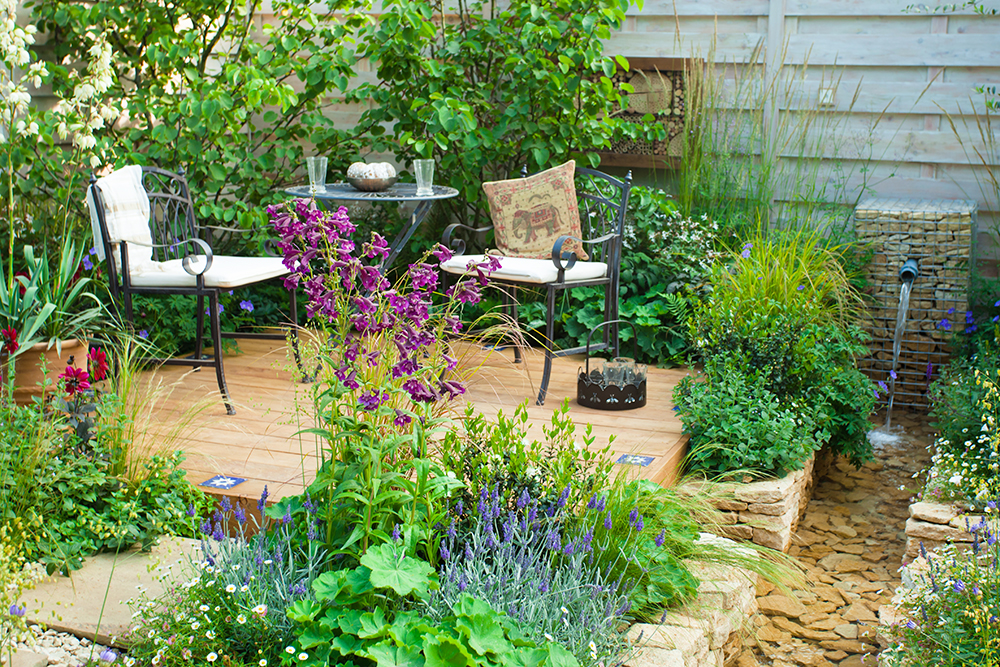
Plan ahead to create the garden you want, including things that will take a bit of work like space for alfresco eating and a water feature
How to design a garden
With any new space, whether it’s inside or out, it’s good to consider how you wish to use it and plan accordingly. The limitless possibilities can seem overwhelming so begin with ideas from others.
Inspiration can be found online, in magazines, television programmes, books, Instagram, Pinterest, or by visiting a gardening show. Create a mood board of your favourite images, colours, plants and features- you’ll soon discover what you do and don’t like.
A garden can be many things, so be specific in creating your wish list. Ask yourself how you see yourself spending time in the garden, and don't forget:
- Children like space to play and pets need to be taken into account in your big dream.
- If you like entertaining and alfresco dining you may want to think about a patio or seating area.
- If you fancy yourself as a vegetable grower, dedicate an area for this.
- Or perhaps you long for an oasis of calm and reflection with the addition of a pond or water feature.
The possibilities are endless and any garden uniquely reflects its owner. Make it yours!
Start by drawing out what you’d like on paper. Perhaps, for instance, you want a patch of turf, some flower beds and a water feature. Drawing it out can allow you to play with the proportions to scale before you break ground and ensure that any infrastructure, such as hard landscaping is planned for and tackled first.
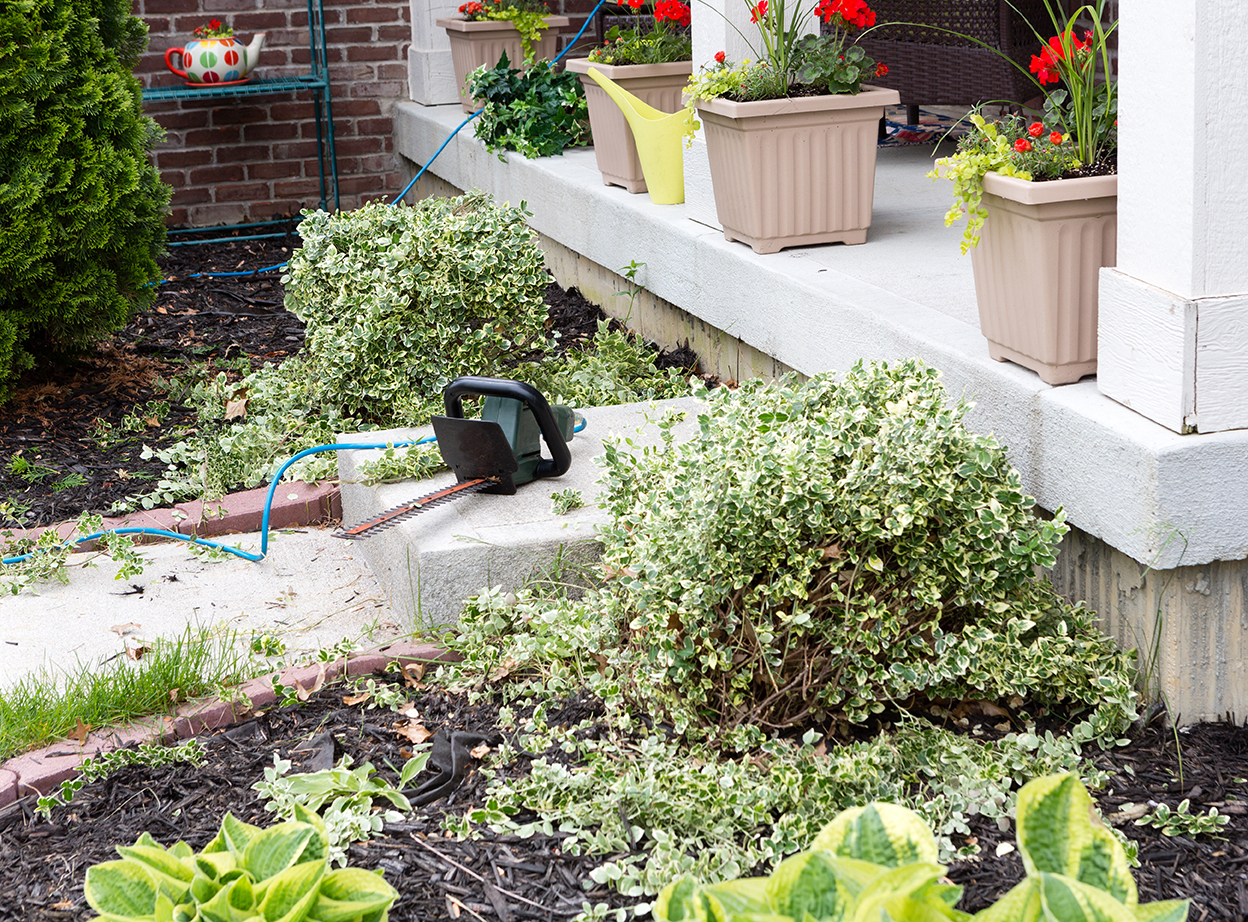
Cut back to see what's really going on when you start a garden. Image: Shutterstock
Cut back to get a clear view
You may be lucky enough to have moved to a property with a well-stocked, well-established garden. In this case, start with general maintenance while you begin to get acquainted and formulate your own ideas.
Simply mowing the lawn instantly transforms a garden. Pruning back overgrown shrubs and borders can also help if you need to gain control or better see the structure of the space, or why not try these easy garden spruce-ups to get you started.
Give borders a good weed, being carful not to remove any perennials that may have temporarily died back, and clear path and patio weeds with a thorough spritzing of white vinegar.
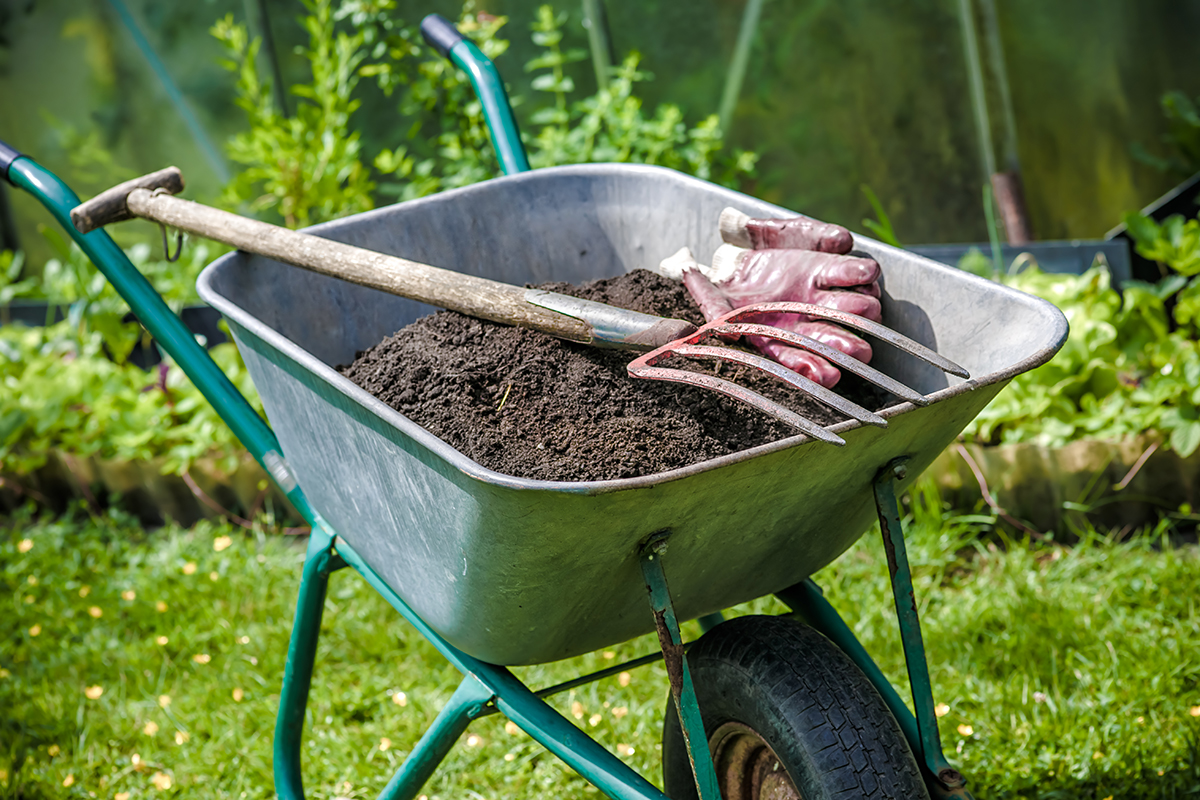
Improve the soil when you start a garden. Image: Shutterstock
Improve the soil
Discover what the soil is like by feeling its texture, is it sandy or sticky like clay? Does it get waterlogged or drain well? You can also carry out a soil test which can be purchased cheaply (from around £5) to be carried out easily at home or there are soil testing services available.
The soil will benefit from improving its quality so consider adding compost or organic matter such as manure; your plants will love you for it! Work two or three inches of manure or compost into the top surface of the soil using a hoe or a fork. Aerate the soil as you mix.
A new-build garden will need extra attention to get the soil habitable, as the topsoil is usually removed in the construction process, leaving inadequate conditions for growing.
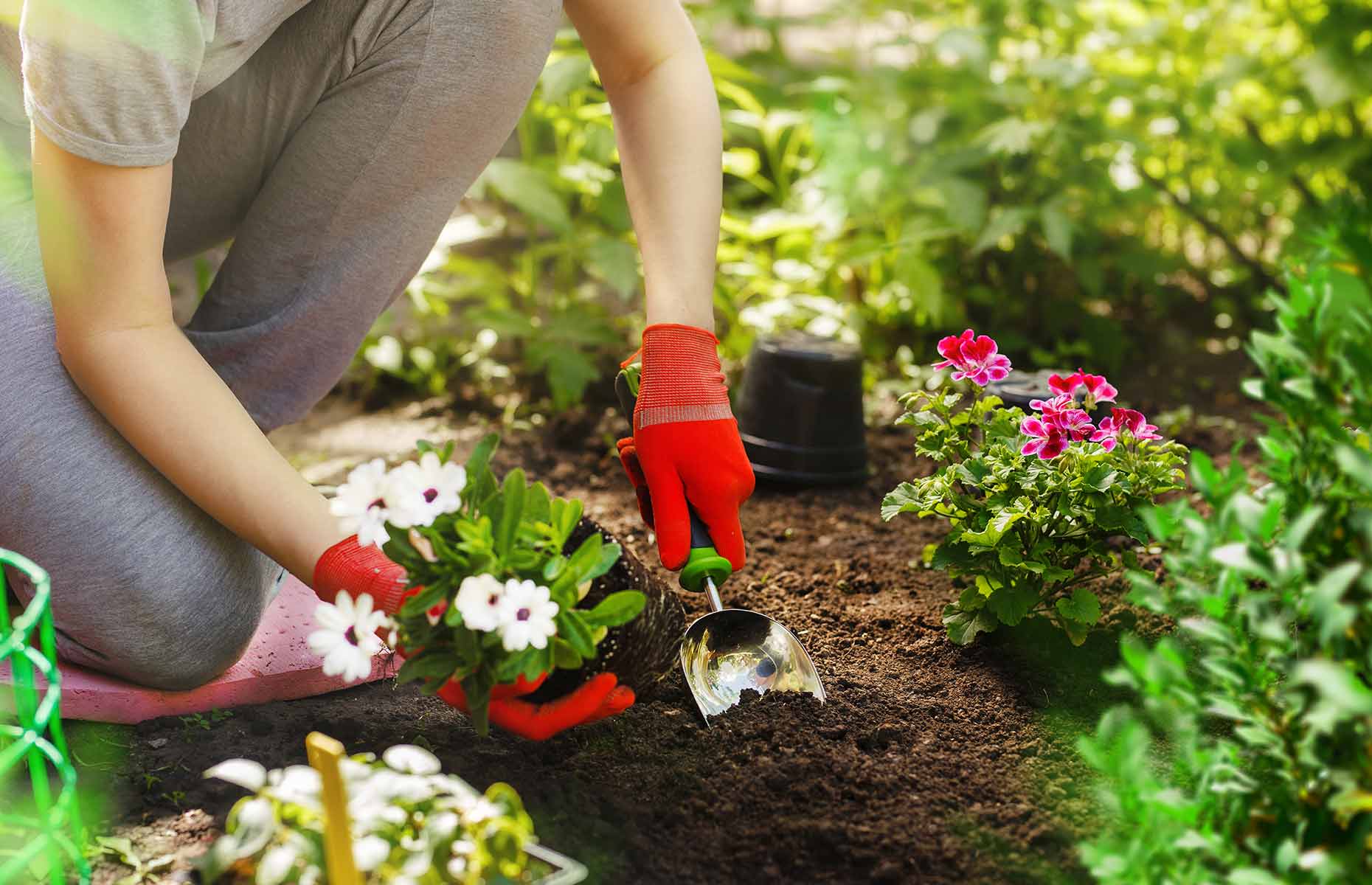
There's no harm in throwing a bit of money at a problem if you can afford it, like flowering plants from the garden centre to brighten up an empty border
Use a shortcut to colour
Whatever the season you find yourself with a new garden, you can instantly add colour, interest and a sense of enjoyment. Planting up a few pots with bulbs ready for spring or for a winter display are cost-effective quick wins.
Visit the garden centre and treat yourself to something in flower now. If you do this once a month, after a year you’ll have something blooming all year round.
If it’s a good season to sow seed (in general April - June) then this can be a brilliant way to add the maximum wow factor for a minimal cost. Check out these other gardening hacks to take the hard work out of maintaining your outdoor space.
Consult a professional
Garden designers are on hand to help, they can consult and form a drawn plan with a planting list for you. Garden landscapers can assist with implanting these plans or working with you directly to create and build features. Bringing in expert help can be costly but a beautiful garden will add to the value of your home.
Consider too, if you hope to stay in the property long term or short term as this will affect the amount of work and money you spend and how quickly you want results.
Don’t worry about messing up
Nothing can really go wrong, plants are tougher than we credit. Gardening is a continual exploration, so go for it, experiment and have fun.
Enjoy it, it’s all yours!
Struggling with a gardening problem? Ask Amy a question in the comments below...
READ MORE: 10 expensive mistakes people often make when designing a garden
Featured image: p-jitti / Shutterstock
Comments
Be the first to comment
Do you want to comment on this article? You need to be signed in for this feature